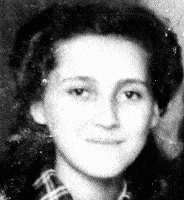You searched for: ��������������������������������������������� ���fuk7778���labor
<< Previous | Displaying results 801-825 of 1002 for "��������������������������������������������� ���fuk7778���labor" | Next >>
-
Margit Nemeth Fekete
ID CardMargit was born to a Jewish family in the city of Szentes. In 1919 she married and had a son, Gyorgy. When Gyorgy was still a baby, Margit divorced, but she remarried several years later. Her new husband, Vilmos Fekete, worked as a manager in a large electric company in Ujpest, a suburb of Budapest. Margit settled there and her son stayed in Szentes with his grandparents. 1933-39: Margit and her son saw each other as often as possible. Margit would travel by bus to Szentes to spend the Jewish holidays…
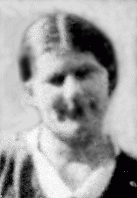
-
Mosze Fuks
ID CardWhen Mosze was a baby his family moved from the small town of Klimontov to the industrial city of Lodz. The Fuks family owned a grocery store and in the early 30s they started manufacturing silk thread. 1933-39: In September 1939 Germany attacked Poland. Over the radio, appeals were broadcast calling Jewish youths to Warsaw to help defend the city. Mosze and his brother, along with hundreds of others, set out for Warsaw. They walked for three days, but when they got to Warsaw, it was too late--the city…
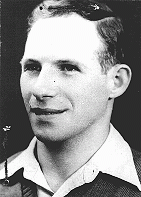
-
Jakab Katz
ID CardJakab, a religious Jew, was the father of eight children. In the early 1900s he sailed to America, paying his way by shoveling coal on the ship. In New York he earned enough money to help two of his daughters immigrate. Returning to Buj, he eventually moved his family to Zalkod, a small town in northeastern Hungary. There, helped by his wife, Terez, and his son, Miklos, he ran a store and a farm. 1933-39: Jakab's daughter, Sadie, and her two children, Lillian and Arthur, are visiting from America. The…
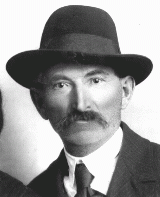
-
Sophie Weisz
ID CardSophie was born to a prosperous Jewish family in a village near the Hungarian border known for its winemaking and carriage wheel industries. The village had many Jewish merchants. Her father owned a lumber yard. Sophie loved to dance in the large living room of their home as her older sister, Agnes, played the piano. 1933-39: Sophie's father believed in a Jewish homeland and sent money to Palestine to plant trees and establish settlements there. When she was 10, she was sent to a school in nearby Oradea…
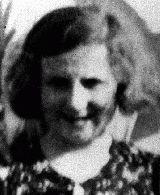
-
Guta Blass Weintraub
ID CardGuta was born to a Jewish family in the Polish city of Lodz, the nation's second-largest city and the center of its textile industry. Her father, a successful businessman, owned a clothing factory, which produced uniforms for the Polish army. Guta attended a private Jewish school in Lodz. 1933-39: On September 1, 1939, not long after Guta began secondary school, the Germans invaded Poland. Polish soldiers moved quickly through Lodz to defend the border, but a few days later, after being beaten, they came…
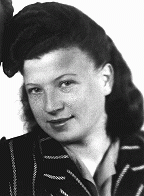
-
Bela Blau
ID CardBela's city of Bratislava, located on the banks of the Danube river, had an old and important Jewish community. Bela was the eighth child in his large Jewish family. His father was a furrier. At age 16 Bela began working as a salesman for a textile business. In 1930 he was called up for 18 months of army service. 1933-39: Bela and his wife moved to the Slovakian city of Zilina. Their son was born in November 1937. Bela worked for a German photographic company until 1938, when he lost his job because he…
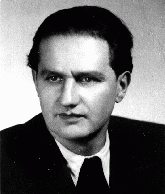
-
Helen Lebowitz
ID CardHelen was one of seven children born to a Jewish family in Volosyanka, a town in Trans-Carpathian Ruthenia. Nestled in the Carpathian mountains, Volosyanka was a small town with a sizable Jewish community. Jewish life revolved around the town's synagogue. Helen grew up in a close-knit family; many relatives lived nearby. Her father owned a shoe store in the town. 1933-39: When Helen was 11 years old, Hungary occupied the Transcarpathian region. At once, Jews were prohibited from holding government…
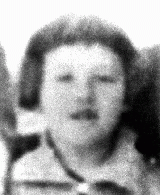
-
Henia Rzondzinski
ID CardHenia was born to parents living in the small predominantly Jewish town of Kaluszyn, 35 miles east of Warsaw. By the early 1930s, hundreds of Jewish workers were employed in the town, some in small craft shops, as tailors and carpenters, and others in larger enterprises, as prayer-shawl weavers and fur coat makers. When Henia was in her twenties, she and her husband, Welwel, moved to Warsaw. 1933-39: When war broke out three months ago, many Jews left Warsaw in a mass exodus towards the east. They were…
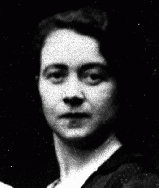
-
Rivka Rzondzinski
ID CardThe mother of six children, Rivka lived 35 miles east of Warsaw in the small predominantly Jewish town of Kaluszyn. The Rzondzinski family was very religious. When Rivka's husband, Fiszel, died in the early 1930s, she and her oldest daughter, Channa, opened a newspaper kiosk near the Kaluszyn railroad station. 1933-39: When Germany invaded Poland several days ago, Rivka's daughter Raizel's husband and her two sons fled eastward to the USSR with other Jewish men. They were afraid that the Germans would…
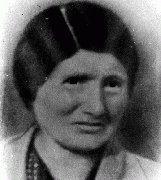
-
Rifka Fass
ID CardRifka was the oldest of three children born to a Jewish family in the Polish town of Ulanow. Ulanow's Jewish community had many of its own organizations and maintained a large library. From the age of 3, Rifka attended a private religious school for girls where she learned Jewish history and Hebrew. At 7 she started public school. Rifka's father worked as a tailor. 1933-39: In 1935 Rifka's father went to America to find a job so his family could later join him. While waiting for immigration papers,…
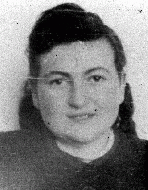
-
Jolan (Cipi) Katz
ID CardThe oldest of eight children, Jolan grew up in a religious Jewish family. She was usually known by her Yiddish nickname, Cipi. After Jolan was born, her parents moved the family to Kisvarda, a town in northeastern Hungary. There she grew up with her four sisters and one surviving brother. Jolan had finished her schooling by 1933. 1933-39: Hitler was popular in Kisvarda. Jolan's mother wanted the family to leave Hungary before the situation worsened, but her father, who had been to the United States…
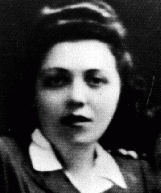
-
Izabella Katz
ID CardIzabella was one of eight children raised in a religious Jewish family in the small town of Kisvarda in northeastern Hungary. Every Friday Izabella and her brother and four younger sisters went to the library to borrow the maximum number of books for their mother. Izabella attended public schools and longed to move to a big city. 1933-39: Antisemitism was prevalent. Izabella can't count the number of times she was called "smelly Jew." Her family cringed at "Heil Hitler" speeches from Germany on the radio…
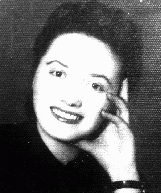
-
Onti Lazar
ID CardOnti, the youngest of five sons, was born to religious Jewish parents in northern Transylvania, a region of Romania that had belonged to Hungary until 1918. Onti's family usually called him Usher, which was the diminutive of his Yiddish name, Anschel. As a little boy, he liked collecting figurines. Though Onti grew up in a Hungarian-speaking home, he attended Romanian public schools. 1933-39: At age 13 Onti quit school to help make ends meet. He wanted to become a watchmaker, but he settled on working as…
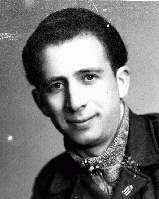
-
Josel Gerszonowicz
ID CardThe oldest of eight children, Josel was born in Miechow, a small town in south central Poland. His father was a machinist and locksmith. As a boy, Josel spent long days learning Hebrew in the Jewish school and taking general subjects at the public school. He was 13 years old when he left school to work in his father's shop. 1933-39: Josel met his wife, Esther, through a matchmaker, and they settled in nearby Dzialoszyce, a town with a Jewish community of about 7,000, and a beautiful synagogue that had…
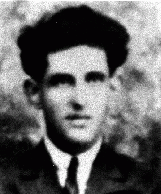
-
Frieda Greinegger
ID CardFrieda was the fourth of five children born to strict Catholic parents. She had one brother and three sisters. Frieda grew up on a large farm near the village of Michaelnbach in northern Austria. The farm had cattle, horses, pigs and poultry, and the children worked long hours helping their parents on the farm. At age 12, Frieda left school to work full time on the farm. 1933-39: Germany annexed Austria in March 1938. When war broke out in September 1939, Frieda's brother was drafted into the German army.…
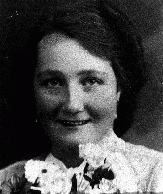
-
Chaie Sura Kisielnicki
ID CardChaie Sura was the youngest of three children born to Jewish parents living 35 miles east of Warsaw in the small, predominantly Jewish town of Kaluszyn. Her father owned a wholesale grocery store, a restaurant and a gas station, which were located together on the busy main road. The Kisielnicki family lived in rooms in the same building as their business. 1933-39: When Germany invaded Poland several days ago, Chaie Sura's father and brothers fled eastward towards the USSR with other Jewish men who were…
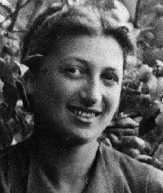
-
Abram Kisielnicki
ID CardThe oldest of three children, Abram was born to Jewish parents in the small, predominantly Jewish town of Kaluszyn, 35 miles east of Warsaw. Abram's father owned a wholesale grocery store, a restaurant and a gas station, all of which were located on the heavily traveled main road. Abram went to public elementary school and also received religious instruction. 1933-39: Abram was 21 when the Germans invaded Poland. Abram, his father, and his brother Majlech fled eastward towards the Soviet Union because…
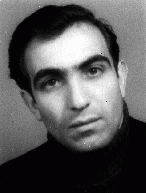
-
Johanna Falkenstein Heumann
ID CardThe oldest of five children, Johanna was born to Jewish parents living in a small town near Cologne. Her father owned a cigar factory. After Johanna graduated from high school, she worked in a bank in Cologne. At 22 she married Carl Heumann and the couple settled in the village of Hellenthal near the Belgian border. There they owned a general store. The couple had two daughters, Margot and Lore. 1933-39: A year ago Johanna's family moved to nearby Bielefeld, and she enrolled Margot and Lore in the city's…
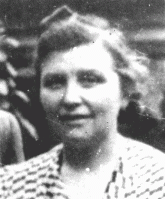
-
Chaim David Jegher
ID CardDavid was one of six children born to religious Jewish parents in Rona de Jos, a town in northwest Romania. The Jeghers subsisted through a variety of enterprises. Besides farming, they bottled their own wine and brandy and produced dried fruit for distribution in Romania and in parts of Czechoslovakia and Hungary. David's father also ran a local transportation and delivery service. 1933-39: Religious school was from 6:30 to 8:00 a.m. David's mother would wait outside the building with some breakfast for…
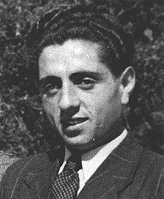
-
Dosia Szabszevicz
ID CardDosia, her older sister and parents lived on her grandfather's estate in the town of Ozorkow, eight miles from Lodz. Dosia's parents were secular Jews. They spoke both Polish and Yiddish to each other, but only Polish to their children. Dosia's father worked as an accountant, and her mother was active in organizing charity events for several of Ozorkow's Jewish organizations. 1933-39: A few days after Germany invaded Poland in 1939, Dosia saw the Polish army retreat through Ozorkow, carrying their wounded…
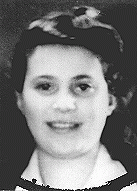
-
Leon Kusmirek
ID CardLeon was the oldest of two boys born to a Jewish family in Zgierz, a central Polish town in the heart of Poland's textile producing region. The family lived at 15 Konstantynowska Street. Leon's father worked at a textile factory. At age 7, Leon began attending public school in the morning and religious school in the afternoon. 1933-39: On Friday, September 1, 1939, Leon's mother had just returned from the market when the family saw German planes. On Sunday they flew over again, lower, panicking the city.…
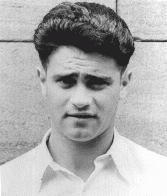
-
Josef Edelstein
ID CardJosef was one of seven children born to a Jewish family in the Czechoslovakian village of Hvozdnice. After graduating from school, Josef worked as a salesman in Vienna. In 1912 he married Ida Kohn, and the couple had a son before he left to fight for Austria in World War I. After the war, they had a daughter. 1933-39: Because of the economic depression of the 1930s, it was difficult for Josef to make a living in his wholesale shoe business. In 1938 the Germans annexed Austria [the Anschluss], and soon…
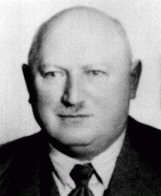
-
Erzsebet Markovics Katz
ID CardErzsebet was born to Jewish parents living in a town on the Bodrog River in northeastern Hungary. Sarospatak was a picturesque town with a ruined medieval fortress, the Windischgratz castle, and many wineries, flour mills, and brickworks. Erzsebet's father was a locksmith and sheet-metal worker. 1933-39: Erzsebet has married Jozsef Katz. It was a lovely, formal wedding. Jozsef comes from a large Jewish family. He's a joiner by trade and was working in Sarospatak when they met. Now they have moved here to…
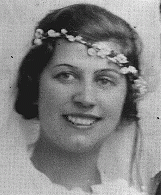
-
Genya Rotenberg
ID CardGenya and her brother, Nahum, were raised by Jewish parents in Lodz, Poland's second-largest city and an industrial center. Before the war, one-third of Lodz's inhabitants were Jewish. Genya's parents placed emphasis on their children's education. 1933-39: In 1939, when Genya was 9, the Germans occupied Lodz. After that, it was forbidden for "Jews, Gypsies and dogs" to be in public places. Since Jews weren't allowed to go to school, her parents arranged to tutor her secretly at home, but she couldn't keep…
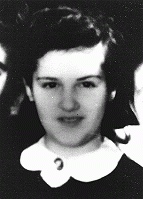
-
Edit Gruenberger
ID CardEdit was the second of three children born to Hungarian-speaking Jewish parents in the city of Kosice in the southeastern part of Czechoslovakia known as Slovakia. She grew up a Czechoslovak citizen. As a young girl, she attended a Jewish elementary school. Her father was a tailor whose workshop was in the Gruenbergers' apartment. 1933-39: After Edit finished elementary school, she entered secondary school. The language of instruction was Slovak and Jews faced no discrimination until November 1938 when…
